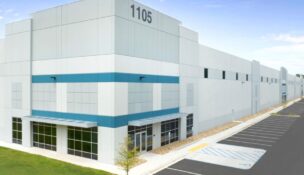Apprenticeships are an option in addressing the skills gap
Staff //March 28, 2018//
How employers will continue to attack the skills gap problem will remain a key trend to watch in 2018, according to HR Dive, which provides news and analysis for human resources executives.
“Internally, human resource offices will need to focus on creating a culture of development, especially if employers want to be prepared for the continued transformations occurring in how people work. Entire systems may need overhauling,” said an HR Dive report on trends that will shape human resources in 2018.
This is where Apprenticeship Carolina can step in, according to Carla Whitlock, senior apprenticeship consultant.
“Anybody who says they don’t have time for apprentices, think about five or six years ahead when you have key people retiring. Do you have time to sit there and panic about that? Think about how you’re going to keep that knowledge in your facility,” Whitlock said at a recent workforce development panel discussion.
“We have a lot of different types of apprenticeships that our manufacturing companies have utilized,” she said. “A lot of the programs that I write here in the Upstate for companies actually have several different tracks to them.”
Companies partnered with Apprenticeship Carolina are creating programs to upskill their current workforce and to “bring in new blood, so to speak,” she said, adding that new employees can come from a number of different sources like technical colleges and even youth apprentices in high school or someone attending a career and technology center.
“There are a lot of different ways that apprenticeships can work for companies to make sure they have the pipelines from the very beginning all the way through full proficiency as adult workers,” she said.
Whitlock highlighted Greenfield Industries in Seneca as an example of a manufacturer benefiting from apprenticeships. She said Greenfield initially put together apprenticeship programs for maintenance technicians and CNC operators about four years ago. Then the company realized it was having more retirements than anticipated so they called Apprenticeship Carolina.
“I floated the idea of a registered youth apprenticeship, to get those local students involved in their facility at an earlier age,” she said. “They were a little hesitant at first, but once I talked them through the process, and talked them through workers’ comp and insurance liability pieces of it, they were extremely comfortable with it.”
Now Greenfield not only has adult programs in maintenance, CNC operations and leadership, they also have two youth apprenticeship programs in CNC operations and information technology, she said.
Anthony Tosti, managing director and CFO of Greenfield Industries in Seneca, said previously that a shortage of skilled workers makes apprenticeship programs necessary.
“In general, what we’ve seen here, as well as in places where I’ve worked previously, is there’s been a shortage of skilled technicians in the labor force,” he said. “The gap really needs to be filled and a lot of the training has been missing, especially for running the more high-tech machines.”
Whitlock said Greenfield is “a perfect example of a company who has utilized adult programs and utilized youth programs so that those high school students when they graduate can go ahead and be moved into an adult program.”
Whitlock said apprenticeship programs in South Carolina are flexible to meet the needs of each individual company. Also, Apprenticeship Carolina offers a $1,000 per registered apprentice state tax credit to companies who have a registered program.
“Companies with people retiring really need to start thinking about registered apprenticeships in their organizations to keep their knowledge in house,” she said.
l















